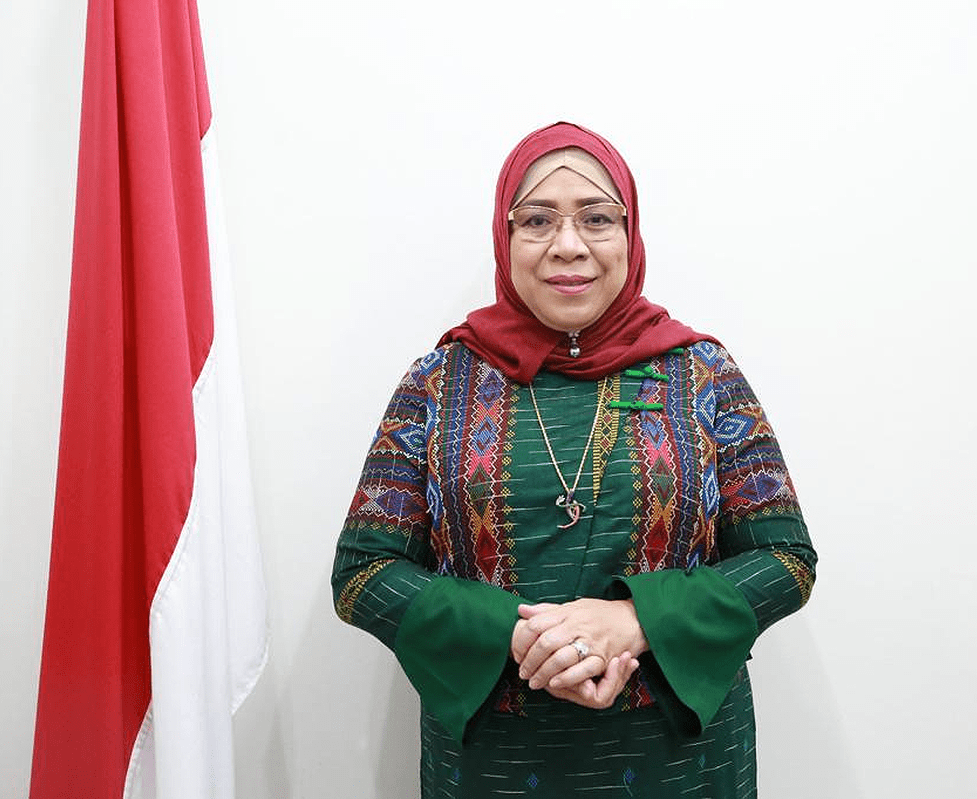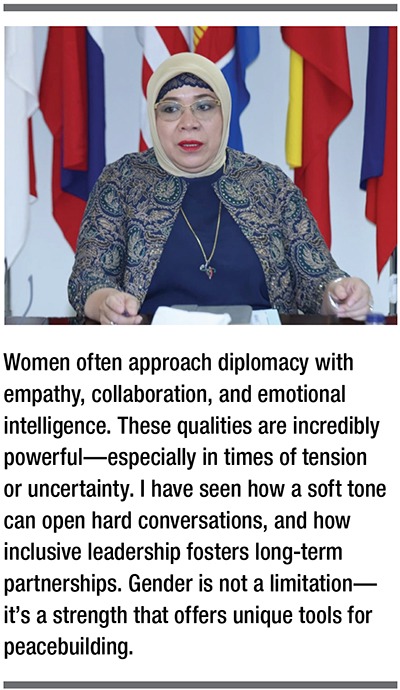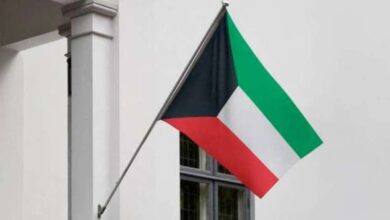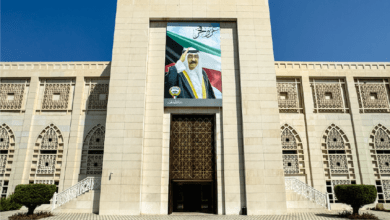Leading with authenticity, building relations on trust, empathy
In a sequel to our series on ‘Honoring Women Reshaping World Diplomacy’, The Times Kuwait spoke this week with Ambassador of Indonesia H.E. Lena Maryana on the influential impact that women diplomats bring to international discussions and in peace efforts, and how diplomacy is stronger when it reflects the full spectrum of society.

The Times Kuwait Report
What inspired you to pursue a career in diplomacy?
My journey into diplomacy was not a traditional one. I came from the world of legislation and public service, serving several terms in the Indonesian Parliament. But the essence is the same; serving the people and representing Indonesia’s interests. When I was entrusted with the ambassadorial role, it became an opportunity to bring my experience in policy, negotiation, and advocacy to the international arena. I saw diplomacy as a platform to continue building bridges; this time, between nations.
What challenges have you faced as a woman in diplomacy, and how did you overcome them?
Being both a woman and a non-career diplomat presented unique challenges. There were moments when my credibility was questioned—not because of my capability, but because I did not come from a traditional diplomatic track. I overcame that through dedication, preparedness, and by leading with authenticity. I reminded myself that diplomacy is ultimately about trust, empathy, and effectiveness—not about titles or seniority.
How do you think gender influences diplomatic styles or approaches?
 Women often approach diplomacy with empathy, collaboration, and emotional intelligence. These qualities are incredibly powerful—especially in times of tension or uncertainty. I have seen how a soft tone can open hard conversations, and how inclusive leadership fosters long-term partnerships. Gender is not a limitation—it’s a strength that offers unique tools for peacebuilding.
Women often approach diplomacy with empathy, collaboration, and emotional intelligence. These qualities are incredibly powerful—especially in times of tension or uncertainty. I have seen how a soft tone can open hard conversations, and how inclusive leadership fosters long-term partnerships. Gender is not a limitation—it’s a strength that offers unique tools for peacebuilding.
Can you share a moment when you felt you made a meaningful impact through your diplomatic work?
One meaningful moment was when I engaged directly with the Indonesian diaspora in Kuwait ensuring their concerns were heard and acted upon. Creating access to education, legal protection, and psychological support for them reminded me that diplomacy extends far beyond formal receptions and negotiations. Sometimes, the real impact happens in quiet rooms filled with genuine human concern.
What leadership qualities do you believe are essential for success in this field?
Integrity, resilience, cultural fluency, and clear communication. As a leader, especially in a diplomatic post, you must listen more than you speak, but when you speak—speak with clarity and purpose. I also believe in leading with compassion. Diplomacy is not just about agreements—it’s about relationships. And relationships thrive on respect.
What advice would you give to young women aspiring to join the foreign service?
Do not wait for validation—step forward. Your voice, your background, and your perspective matter. Be curious about the world, sharpen your language and negotiation skills, and build your confidence brick by brick. The world needs more women at the table—not just for gender balance, but because diplomacy is stronger when it reflects the full spectrum of society.
How can diplomacy better reflect the diversity of the societies it represents?
It starts with inclusive recruitment, but it must go further—to real empowerment. Representation is not enough if diverse voices are not being heard or given leadership roles. We need more women ambassadors, more diplomats from underrepresented regions, and more pathways for non-traditional backgrounds. Diversity must not only be visible—it must be valued.
How would you describe your tenure in Kuwait
A tenure driven by economic diplomacy, people-to-people connection, and real, lasting outcomes. Since my appointment in 2021, I have focused on strengthening Indonesia–Kuwait relations through strategic investment and cultural engagement.
In the economic and energy sectors, one of our proudest milestones has been facilitating KUFPEC’s acquisition of two upstream oil blocks in Indonesia, followed by their commitment to invest up to Rp 155 trillion (USD 10 billion) in Indonesia’s oil and gas sector. This historic investment initiative, positions Kuwait as one of Indonesia’s key partners in long-term energy cooperation.
We also launched a series of Indonesia–Kuwait Investment Forums, highlighting strategic sectors such as infrastructure, and sustainable tourism. These efforts reflect our commitment to turning diplomacy into development. In the labor sector, I continue to advocate for the welfare of over 6,000 Indonesians working in Kuwait across the oil and gas sector, healthcare, hospitality, IT and education. We are currently preparing for a strategic recruitment of 1,000 Indonesian medical professionals; a move that strengthens our workforce presence in the Gulf.
What makes this tenure deeply personal is the cultural bridge I’ve built through Kuwait’s Diwaniyas. These gatherings allowed me to connect with leaders, scholars, entrepreneurs, and prominent figures; sharing not only Indonesia’s positions, but our values: wasatiyah (Islamic moderation), harmony, and friendship. In these spaces, diplomacy was not formal; it was human.
As a non-career diplomat with roots in politics and advocacy, I bring a people-centered approach to diplomacy; where partnerships are built not just between governments, but between communities, values, and futures. My mission in Kuwait has been clear: to serve, connect, and deliver lasting impact through both statecraft and sincerity.












